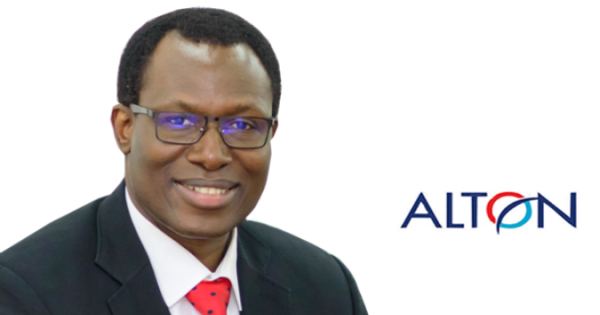Telecom
Abuse of Trusted Applications Grows by 51% in Latest Sophos Report

Sophos, a global leader in innovating and delivering cybersecurity as a service, today released “The Bite from Inside: The Sophos Active Adversary Report,” an in-depth look at the changing behaviors and attack techniques that adversaries used in the first half of 2024.

John Shier, field CTO, Sophos
The data, derived from nearly 200 incident response (IR) cases from across both the Sophos X-Ops IR team and Sophos X-Ops Managed Detection and Response (MDR) team, found that attackers are leveraging trusted applications and tools on Windows systems, commonly called “living off the land” binaries, to conduct discovery on systems and maintain persistence.
When compared to 2023, Sophos saw a 51% increase in abusing “Living off the Land” binaries or LOLbins; since 2021, it’s increased by 83%.
Among the 187 unique Microsoft LOLbins detected in the first half of the year, the most frequently abused trusted application was remote desktop protocol (RDP). Of the nearly 200 IR cases analyzed, attackers abused RDP in 89% of them.
This dominance continues a trend first observed in the 2023 Active Adversary report in which RDP abuse was prevalent in 90% of all IR cases investigated.
“Living-off-the-land not only offers stealth to an attacker’s activities but also provides a tacit endorsement of their activities. While abusing some legitimate tools might raise a few defenders’ eyebrows, and hopefully some alerts, abusing a Microsoft binary often has the opposite effect. Many of these abused Microsoft tools are integral to Windows and have legitimate uses, but it’s up to system administrators to understand how they are used in their environments and what constitutes abuse. Without nuanced and contextual awareness of the environment, including continuous vigilance to new and developing events within the network, today’s stretched IT teams risk missing key threat activity that often leads to ransomware,” says John Shier, field CTO, Sophos.
In addition, the report found that, despite the government disruption of LockBit’s main leak website and infrastructure in February, LockBit was the most frequently encountered ransomware group, accounting for approximately 21% of infections in the first half of 2024.
Other key findings from the latest Active Adversary Report:
· Root Cause of Attacks: Continuing a trend first noted in the Active Adversary Report for Tech Leaders, compromised credentials are still the number one root cause of attacks, accounting for the root cause in 39% of cases. This is, however, a decline from the 56% noted in 2023
· Network Breaches Dominate for MDR: When examining solely the cases from the Sophos MDR team, network breaches were the dominant incident the team encountered
· Dwell Times Are Shorter for MDR Teams: For cases from the Sophos IR team, dwell time (the time from when an attack starts to when it’s detected) has remained approximately eight days. However, with MDR, the median dwell time is just one day for all types of incidents and only three days for ransomware attacks
· The Most Frequently Compromised Active Directory Servers Are Nearing End of Life: Attackers most frequently compromised the 2019, 2016, and 2012 server versions of Active Directory (AD). All three of these versions are now out of mainstream Microsoft support—one step before they become end-of-life (EOL) and impossible to patch without paid support from Microsoft. In addition, a full 21% of the AD server versions compromised were already EOL
To learn more about attacker behaviors, tools and techniques, read “The Bite from Inside: The Sophos Active Adversary Report,” on Sophos.com.
Telecom
Fines: Meta Threatens to Shut Down Facebook, Instagram in Nigeria

Meta may shut down its Facebook and Instagram services in Nigeria in protest against the substantial fines imposed by multiple government agencies.

The tech giant has been ordered to pay nearly $300 million in fines in Africa’s most populous nation, following regulatory demands which Meta described as “unrealistic.”
In July 2024, the Federal Competition and Consumer Protection Commission (FCCPC), imposed a $220 million fine on Meta for allegedly discriminatory and exploitative practices against Nigerian consumers.
The commission stated that Meta had failed to engage a Data Protection Compliance Organisation and had not submitted a Nigeria Data Protection Regulation audit report for two consecutive years.
Similarly, the Advertising Regulatory Council of Nigeria (ARCON), demanded $37.5 million over unapproved advertising, while the Nigerian Data Protection Commission (NDPC), announced a $32.8 million fine for an alleged data privacy breach.
Meta challenged the decisions at the Federal High Court in Abuja but was unsuccessful, as the court upheld the fines in a ruling delivered last week.
The court directed the company to comply with payment by the end of June, but Meta has indicated it may not do so, according to the BBC.
“The applicant may be forced to effectively shut down the Facebook and Instagram services in Nigeria in order to mitigate the risk of enforcement measures,” the company stated in court documents.
Responding to the NDPC’s assertion that Meta’s data processing could expose Nigerian users to health and financial risks, the company said the agency had failed to “properly interpret the laws guiding data privacy.”
Telecom
Premier League Fever Builds as MTN Nigeria Stages Dual-City Watch Parties This Weekend

As the Premier League season enters its final stretch, MTN Nigeria is set to stage simultaneous watch parties in Abuja and Uyo on Sunday, May 4, giving football fans a shared space to experience the highs and lows of matchday.

The events, scheduled for Farm City in Wuse and Pyramid Lounge & Grill in Uyo, are expected to attract large turnouts as MTN continues to deepen its connection with football audiences nationwide.
The line-up for the day includes four Premier League fixtures, culminating in a marquee showdown between Chelsea and Liverpool. Earlier games such as Brentford vs Manchester United, Brighton vs Newcastle, and West Ham vs Tottenham will round out a packed viewing schedule. With top four ambitions, title races, and European dreams on the line, the fixtures promise high-stakes drama and entertainment.
MTN’s EPL watch parties have grown into a recurring highlight for fans who want more than just a screen, they want atmosphere. This weekend’s events will feature expansive screen setups, branded fan zones, and side attractions including live trivia and merchandise giveaways.
For MTN, the activations represent an opportunity to tap into the communal spirit of football, a sport that unites Nigerians across regions and loyalties. The brand’s involvement in football has steadily evolved from sponsorship to full-scale experiences, allowing it to build affinity with youth audiences and sports lovers alike.
In recent years, MTN has emerged as a key driver of fan engagement through its partnership with SuperSport and broader investment in Nigeria’s football ecosystem. These dual-city events reflect that strategy in motion, bringing the Premier League closer to the streets and ensuring fans are not just spectators, but participants in the global game.
With anticipation running high and bragging rights on the line, Sunday’s watch parties are shaping up to be a celebration of sport, identity, and the power of community on and off the pitch.
Telecom
Telecoms Services Resume in Kogi State as Telcos, Govt Resolve Dispute

Telecommunications services disrupted in Kogi State have resumed following a resolution of the dispute between MTN Nigeria and the state government, the Association of Licensed Telecoms Operators of Nigeria (ALTON) has said.

Gbenga Adebayo, chairman of ALTON, told TVC News that the issues that led to the shutdown of telecom masts in the state, primarily affecting MTN, had been addressed, paving the way for service restoration.
TVC News earlier reported that businessmen and women were counting their losses as they suffered the impact of a shut down of telecommunication service in Kogi State
Over the past two weeks, telecoms connectivity had been erratic, with competing brands experiencing glitches, particularly in the Lokoja metropolis.
The State government suspended the operations of some telecom services citing unpaid taxes and fibre-related dues.
The shutdown stemmed from a compliance dispute between MTN and the Kogi State Utility Infrastructure Management and Compliance Agency, which accused the telecom giant of violating operational rules and under-declaring the extent of its optic fibre network coverage in the state.

 E-Financial2 days ago
E-Financial2 days agoCBN Slams ₦250m Fine on Paystack Over Zap Wallet Operations

 General News2 days ago
General News2 days agoNITDA Inaugurates Start-up Consultative Forum

 Telecom2 days ago
Telecom2 days agoGBB Reaffirms Commitment to Driving Public Sector Innovation @ the 5th Public Service Innovation Competition Awards

 Telecom1 day ago
Telecom1 day agoSterling Bank Introduces AlwaysOn, Offering Nigerians Up to ₦1 Million Monthly

 Telecom3 days ago
Telecom3 days agoMTN Nigeria Invests N202.4Bn in Q1 2025 to Enhance Network Capacity

 General News2 days ago
General News2 days agoNFIU Alerts Nigerians of Rising Ponzi Schemes, Unregulated Crowdfunding Scams

 News2 days ago
News2 days agoFirm Warns Against AI Password Generation @ World Password Day

 Telecom2 days ago
Telecom2 days ago5 tips to start taking digital payments as a business in Africa


























